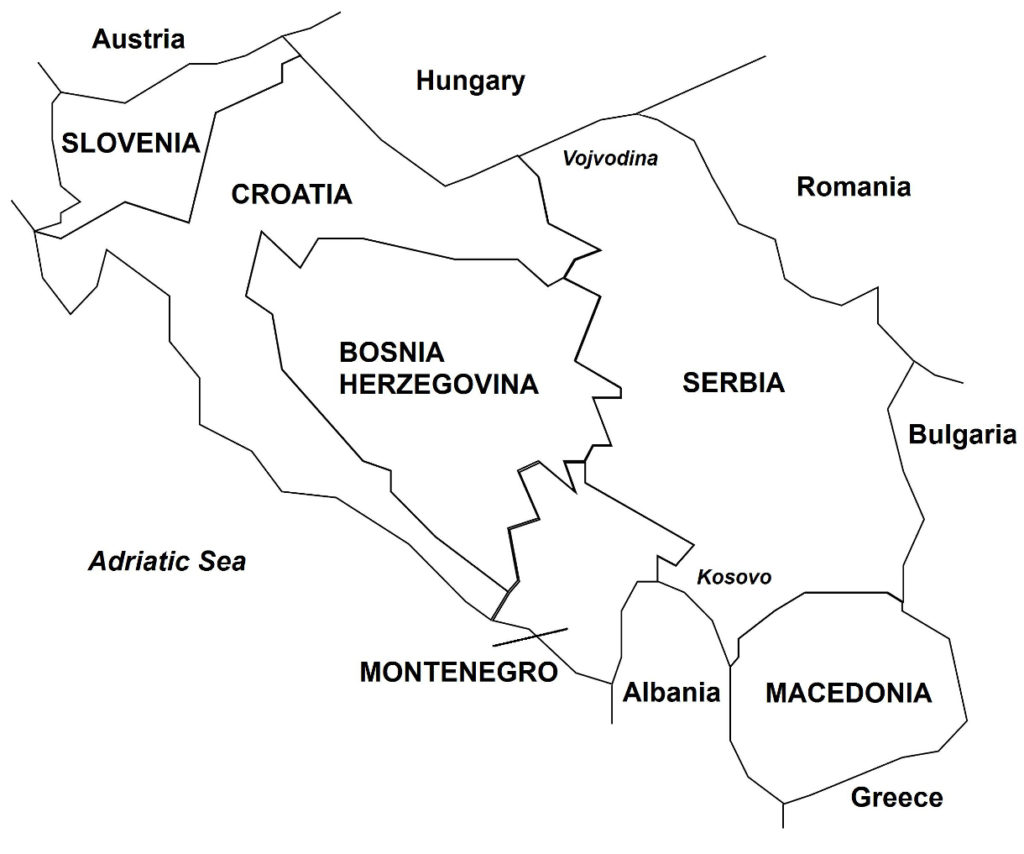On February 5, 1994, Bosnian Serb forces of the Army of Republika Srpska fired a mortar shell into the crowded Markale (market) in Sarajevo (the capital of Bosnian and Herzegovina), killing 68 civilians and wounded 144 others. A second attack on the Markale occurred on August 28, 1995, where five mortar shells killed 43 people and wounded 75 others. The two incidents occurred during the Siege of Sarajevo during the Bosnian War. They are now known as the Markale Massacres, which the International Criminal Tribunal for the Former Yugoslavia (ICTY) have declared as ethnic cleansing perpetrated by troops of the Army of Republika Srpska.

(Taken from Bosnian War – Wars of the 20th Century – Volume 1)
Many atrocities and human rights violations were committed in the war, the great majority of which were perpetrated by Bosnian Serbs, but also by Bosnian Croats, and to a much lesser extent, by Bosniaks.
Bosnian Croat forces also perpetrated many atrocities, including those that occurred in the Lasva Valley, which caused the deaths and forced disappearances of 2,000 Bosniaks, as well as other violent acts against civilians. Bosniak forces also committed crimes against civilians and captured soldiers, but these were of much less frequency and severity.
About 90% of all crimes in the Bosnian War were attributed to Bosnian Serbs. The ICTY has convicted and meted out punishments to many perpetrators, who generally were military commanders and high-ranking government officials. The war caused some 100,000 deaths, both civilian and military; over two million persons were displaced by the fighting.
After the war, Bosnia-Herzegovina retained its territorial integrity. As a direct consequence of the war, Bosnia-Herzegovina established a decentralized government composed of two political and geographical entities: the Republic of Bosnia and Herzegovina (consisting of Bosniak and Bosnian Croat majorities) and the Republic of Srpska (consisting of Bosnian Serbs). The president of Bosnian-Herzegovina is elected on rotation, with a Bosniak, Bosnian Croat, and Bosnian Serb taking turns as the country’s head of state.
Background Bosnia-Herzegovina has three main ethnic groups: Bosniaks (Bosnian Muslims), comprising 44% of the population, Bosnian Serbs, with 32%, and Bosnian Croats, with 17%. Slovenia and Croatia declared their independences in June 1991. On October 15, 1991, the Bosnian parliament declared the independence of Bosnia-Herzegovina, with Bosnian Serb delegates boycotting the session in protest. Then acting on a request from both the Bosnian parliament and the Bosnian Serb leadership, a European Economic Community arbitration commission gave its opinion, on January 11, 1992, that Bosnia-Herzegovina’s independence cannot be recognized, since no referendum on independence had taken place.
Bosnian Serbs formed a majority in Bosnia’s northern regions. On January 5, 1992, Bosnian Serbs seceded from Bosnia-Herzegovina and established their own country. Bosnian Croats, who also comprised a sizable minority, had earlier (on November 18, 1991) seceded from Bosnia-Herzegovina by declaring their own independence. Bosnia-Herzegovina, therefore, fragmented into three republics, formed along ethnic lines.
Furthermore, in March 1991, Serbia and Croatia, two Yugoslav constituent republics located on either side of Bosnia-Herzegovina, secretly agreed to annex portions of Bosnia-Herzegovina that contained a majority population of ethnic Serbians and ethnic Croatians. This agreement, later re-affirmed by Serbians and Croatians in a second meeting in May 1992, was intended to avoid armed conflict between them. By this time, heightened tensions among the three ethnic groups were leading to open hostilities.
Mediators from Britain and Portugal made a final attempt to avert war, eventually succeeding in convincing Bosniaks, Bosnian Serbs, and Bosnian Croats to agree to share political power in a decentralized government. Just ten days later, however, the Bosnian government reversed its decision and rejected the agreement after taking issue with some of its provisions.
